Israeli paratroopers conduct 'defense activities' in Syria after fall of Assad
Paratroopers with the IDF deployed to Syria to conduct "defense activities" following the fall of former Syrian President Bashar Assad. (IDF)
Israel rejected Turkish accusations on Tuesday following Ankara’s condemnation of Israeli military actions in Syria, as Turkey escalates its own operations in the war-torn country. The rising tensions have deepened the rift between the two nations and sparked concerns over regional stability and the fate of U.S.-backed Kurdish forces fighting ISIS.
On Monday, the Turkish Foreign Ministry criticized Israel for expanding settlements in the Golan Heights, calling it part of Israel’s "expansion of borders through occupation." Turkey urged Israel to comply with the 1974 Disengagement Agreement, which established a cease-fire between Israel and Syria.
However, Israeli Prime Minister Benjamin Netanyahu declared the agreement void, arguing it no longer applied after forces loyal to Syrian President Bashar al-Assad abandoned their positions on the Syrian side during the country’s civil war. Netanyahu has described the Golan Heights as a vital security buffer and integral to Israel’s defense strategy against Iran and Hezbollah, which operate in Syria.
TRUMP SAYS TURKEY ‘DID AN UNFRIENDLY TAKEOVER’ IN SYRIA AS US-BROKERED CEASE-FIRE APPEARS TO FAIL
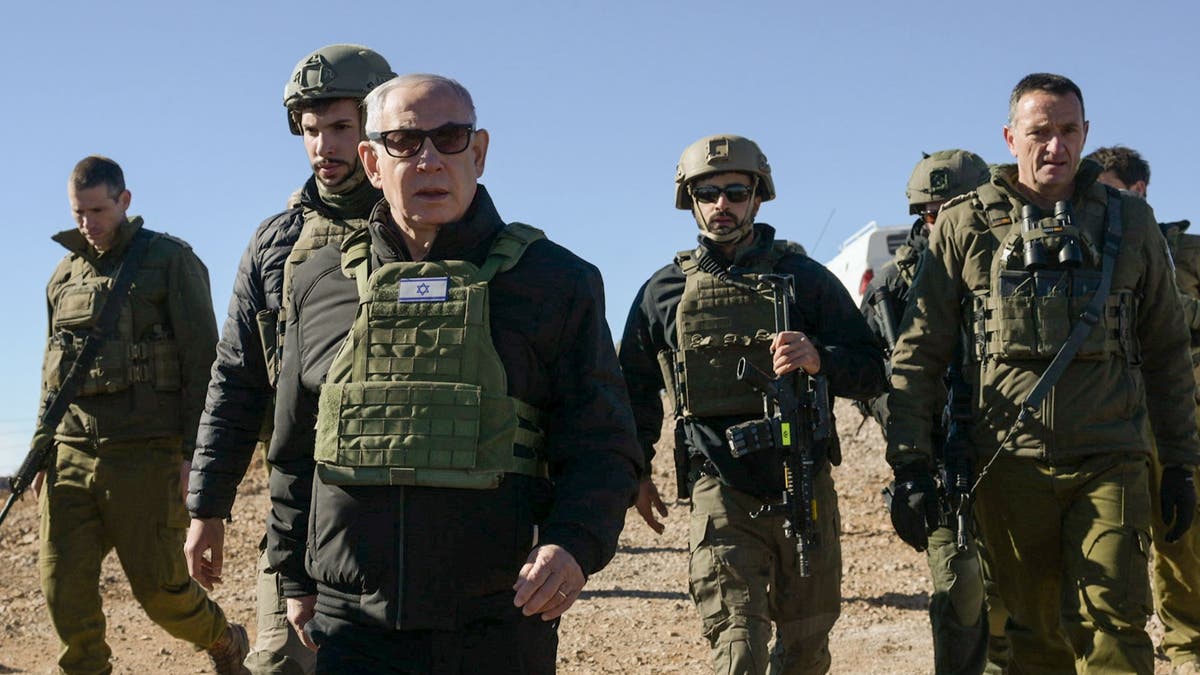
Prime Minister Benjamin Netanyahuheld meetings on Tuesday at Mount Hermon with Defense Minister Israel Katz, Chief of Staff Lt. Col. Herzi Halevi, Northern Command Commander Major General Uri Gordin, and Shin Bet Chief Ronen Bar. (IDF)
On Tuesday, Israel’s Foreign Ministry issued a response on X. "Turkey has systematically encroached on Syrian territory... Approximately 15% of Syria’s territory is under Turkish-backed control. In these areas, the Turkish currency is in use, and Turkish bank branches and postal services have been operating.
"Furthermore, the Turkish military bombards infrastructure in the northeastern autonomous region of Syria using aircraft and UAVs. Turkey supports jihadist forces that operate against Kurds in Syria. The last country that can speak about occupation in Syria is Turkey… There is no justification for Turkish aggression and violence against Kurds in Syria!"
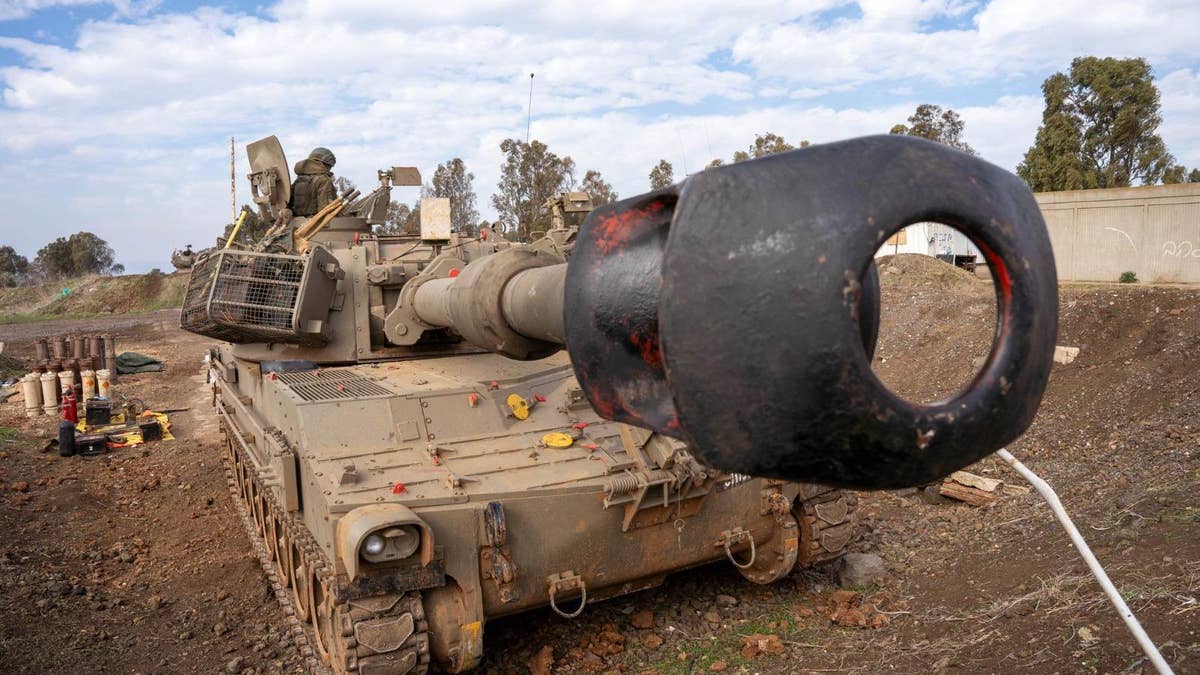
The Israeli Defense Forces announced it was reinforcing its border with Syria on the Golan Heights following developments in Syria. (IDF Spokesman's Unit.)
The unusually sharp exchange reflects a new low in bilateral relations, according to Gallia Lindenstrauss, a senior research fellow at the Institute for National Security Studies. "Relations between Israel and Turkey are now at their lowest point in decades," she told Fox News Digital. "In May, Turkey imposed a complete trade ban on Israel, severing all direct links. This is unprecedented for countries that maintain diplomatic relations."
Turkish President Recep Tayyip Erdoğan’s rhetoric has worsened ties further. His support for Hamas, which carried out the Oct. 7 attack on Israel, and his accusations of "genocide" in Gaza have drawn Israeli ire. "We must be very strong so that Israel can’t do these ridiculous things to Palestine," Erdoğan said in July. "Just like we entered Karabakh, just like we entered Libya, we might do similar to them."
TOP US ALLY, SDF COMMANDER IN SYRIA WARNS OF ISIS RETURN IF TURKISH AIRSTRIKES DON’T STOP
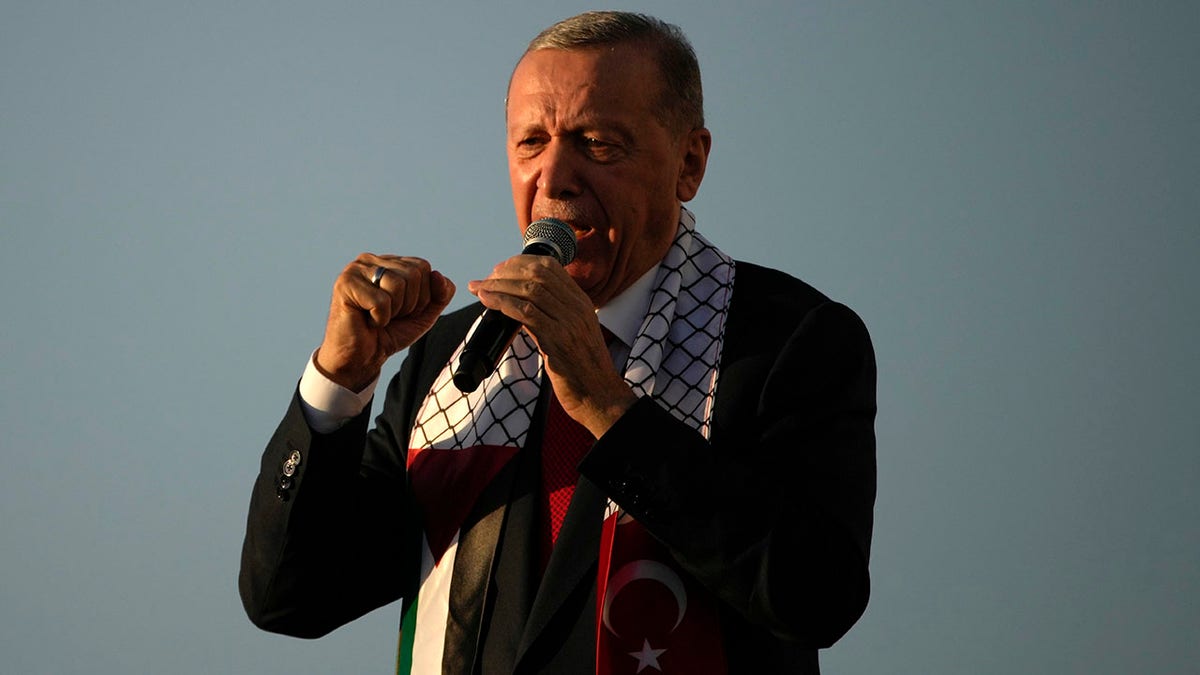
Turkish President Recep Tayyip Erdoğan speaks to the attendees during a rally to show their solidarity with the Palestinians, in Istanbul on Saturday, Oct. 28. (AP/Emrah Gurel)
Erdoğan has also urged Islamic nations to unite against Israel, calling it "the most concrete threat to regional and global peace." Lindenstrauss emphasized Turkey’s support for Hamas as a major source of tension. "Turkey backs Hamas and wants to see Hamas remain in charge in Gaza after the war," she explained.
Israel remains increasingly concerned about Turkey’s military buildup in northern Syria. Lindenstrauss said Ankara’s ambitions are growing. "Turkey has been in control of northern areas and supported rebels against Assad," she said. "The question now is whether Turkey’s influence will spread further south, positioning Ankara as a patron of the emerging regime."
Lindenstrauss highlighted Turkey’s reliance on Qatar for financial backing, referencing Erdoğan’s recent meeting with the Qatari emir. "Turkey cannot sustain its influence in Syria alone," she said. "It needs Gulf state cooperation, particularly from Qatar, Saudi Arabia, and the UAE, to finance the rebuilding of Syria."
US WARNS AMERICANS TO FLEE SYRIA OR PREPARE TO 'SHELTER IN PLACE FOR EXTENDED PERIODS'
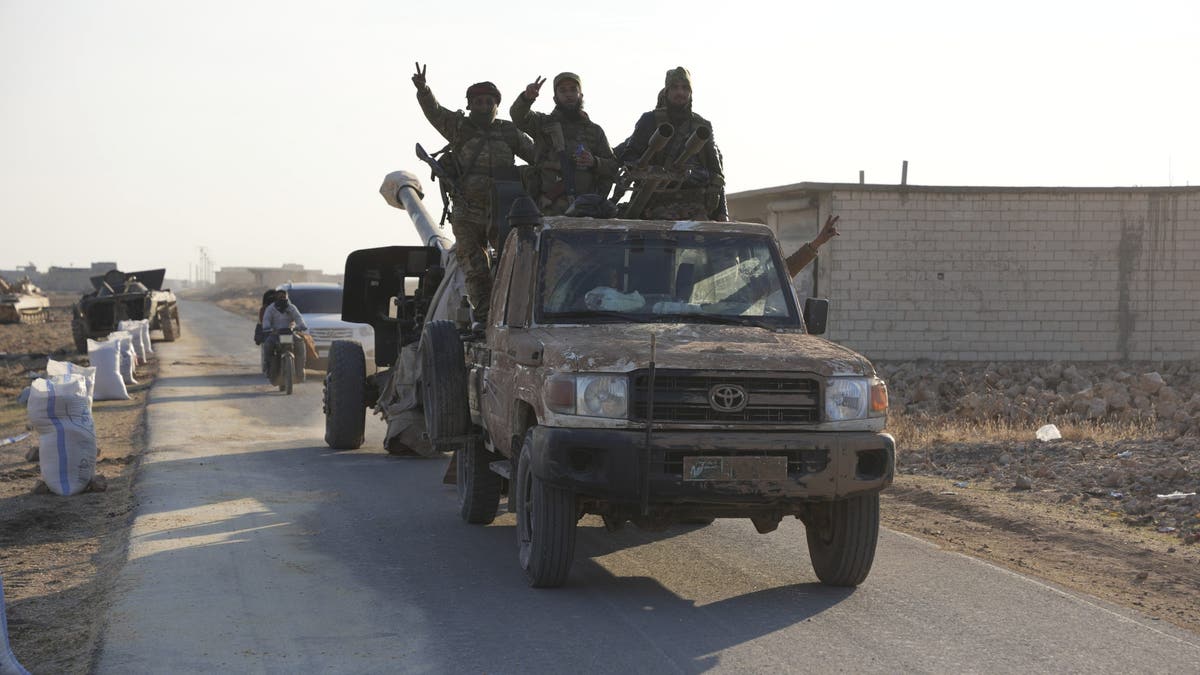
Rebels in northwest Syria seized military vehicles belonging to the regime along the route toward Kweris Airport in the eastern countryside of Aleppo on Dec. 2, 2024. (Rami Alsayed/NurPhoto via APRami Alsayed/NurPhoto via AP)
Turkey’s focus remains on dismantling Kurdish control in northern Syria, particularly around Kobani, a symbolic city for the Kurds. Ankara’s current strategy recalls its 2019 invasion, which displaced hundreds of thousands of civilians.
"The Kurds control prisons that hold thousands of ISIS fighters," Lindenstrauss said. "These prisons are critical to the U.S., Israel, and the West. Weakening Kurdish control risks regional destabilization and a resurgence of ISIS."
CLICK HERE TO GET THE FOX NEWS APP
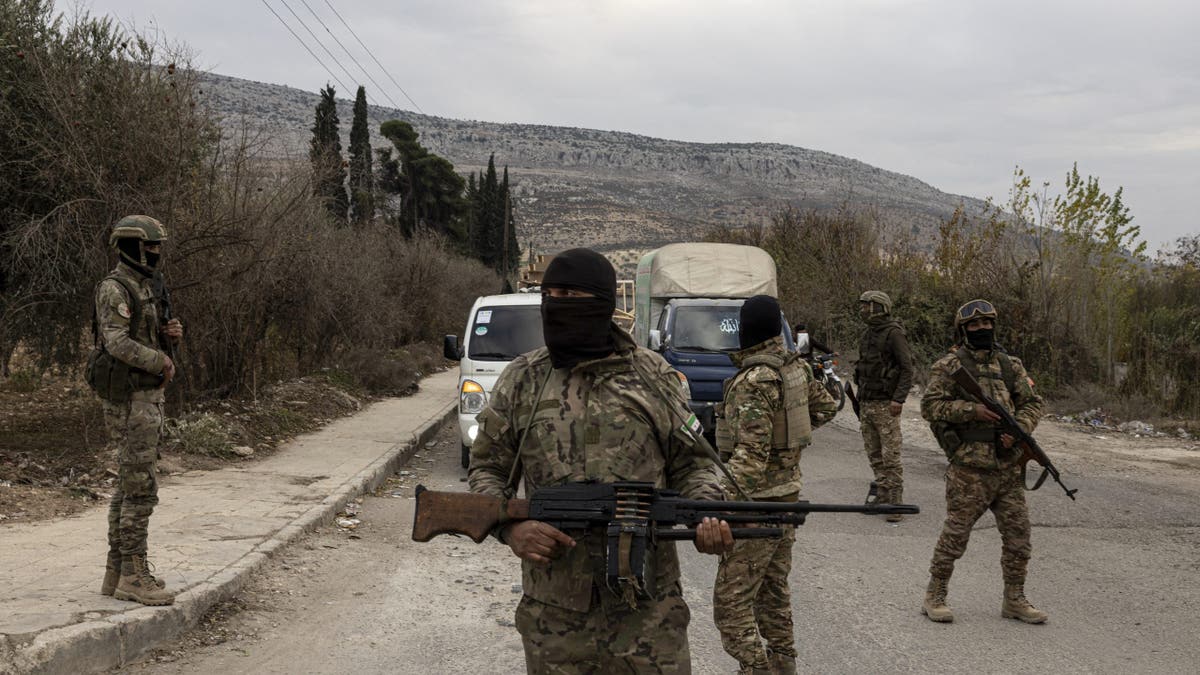
Displaced Kurds leave the refugee camp in the north of Aleppo, fleeing to Afrin, on Dec. 4, 2024. (Ugur Yildirim/DIA Images/Abaca/Sipa USA(Sipa via AP Images)
As Turkey deepens its presence in Syria, analysts warn that clashes with Israel could become unavoidable. Dr. Hay Eytan Cohen Yanarocak of Tel Aviv University’s Moshe Dayan Center drew parallels to Turkey’s interventions in Libya and Azerbaijan. "If Turkish forces move into proximity with Israeli operations or allies, the risk of unintended confrontations will rise dramatically," he told TPS-IL news agency.
Despite the sharp rhetoric, experts argue that both countries share an interest in avoiding direct conflict. "Turkey’s main interests are in northern Syria, while Israel’s focus is on the south," Lindenstrauss said. "Israel and Turkey managed to establish deconfliction channels with Russia in Syria to avoid friction. Similar mechanisms will be necessary here, even if they operate quietly."
Yanarocak warned of growing risks. "The skies are the limit for how far this situation could deteriorate," he said. "It’s time to pay attention."










































